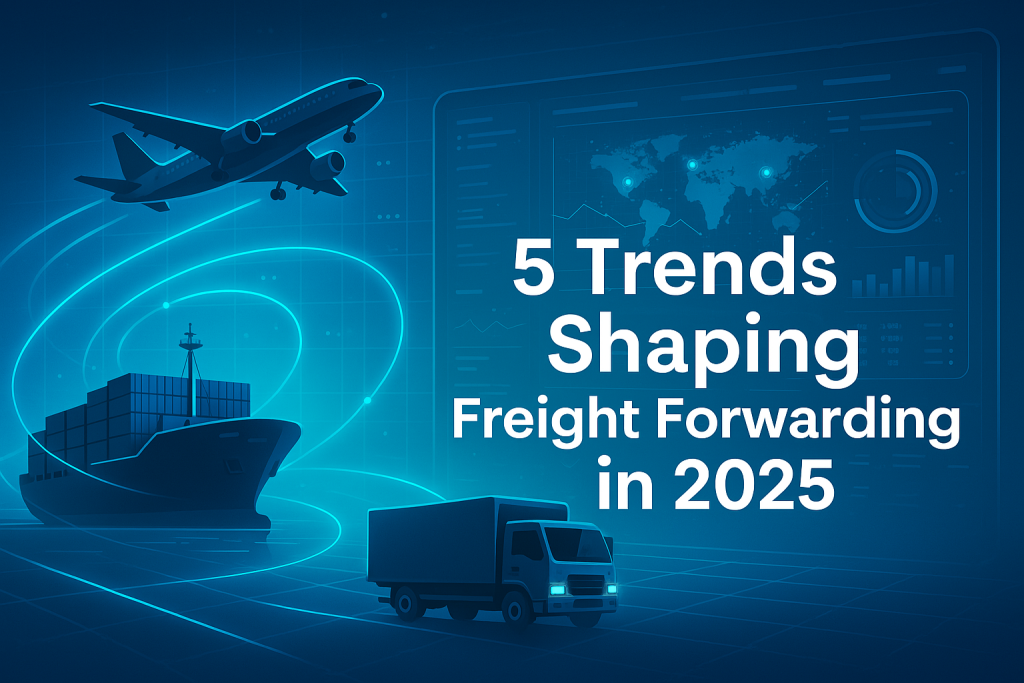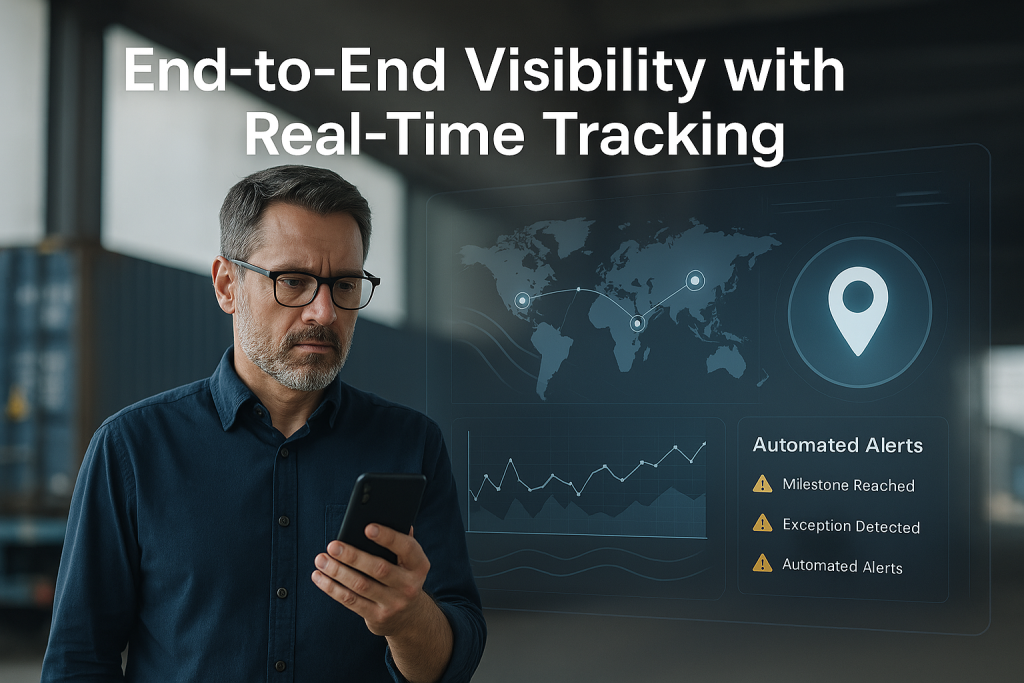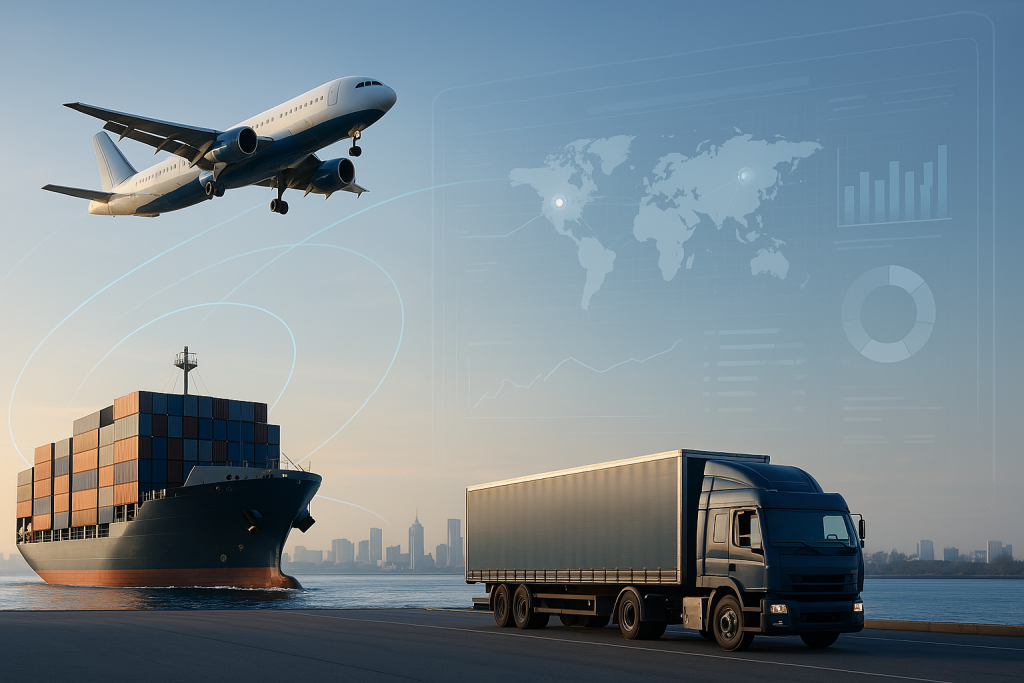5 Trends Shaping Freight Forwarding in 2025

🚀 1. AI-Powered Automation & Predictive Logistics
Why it matters: Manual processes are out; intelligent automation is in.
AI is transforming how freight forwarders manage bookings, documentation, and route optimization. In 2025, predictive logistics using AI and machine learning allows companies to:
- Forecast delays due to weather, customs, or port congestion.
- Automate repetitive tasks like invoice generation or shipment tracking.
- Optimize routes based on real-time conditions and historical data.
💡 Pro Tip: Platforms like Linbis offer integrated automation tools that reduce manual workload and increase operational accuracy.
📦 2. End-to-End Visibility with Real-Time Tracking
Why it matters: Transparency is now a competitive advantage.
Shippers and consignees alike expect full visibility into their cargo movement. Freight forwarding software in 2025 is embracing:
- IoT-enabled tracking devices.
- Real-time dashboards for customers.
- Automated alerts for milestones or exceptions.
🔍 The shift is from “track and trace” to “monitor and manage” — making proactive logistics possible.

🌱 3. Sustainability Becomes a Core Priority
Why it matters: Customers, regulators, and stakeholders are demanding greener operations.
Freight forwarders are increasingly adopting sustainable practices to:
- Lower carbon emissions by optimizing routes and loads.
- Use carbon offset tools to meet environmental targets.
- Partner with eco-friendly carriers and suppliers.
🌿 Linbis supports carbon tracking and reporting — helping companies align with ESG goals.
🌐 4. Digital Platforms & Integration Ecosystems
Why it matters: Freight forwarders need to do more with less — and faster.
Gone are the days of siloed systems. In 2025, digital platforms that integrate with:
- Customs brokers,
- Carriers (air, sea, land),
- Warehouse management systems,
- Accounting tools,
…are empowering seamless freight workflows.
🔗 With Linbis Workspace, forwarders can connect multiple services within one user-friendly interface, improving both internal coordination and customer service.
🔐 5. Cybersecurity & Data Compliance in Global Trade
Why it matters: As freight goes digital, so do the risks.
Freight forwarders are now key data custodians. In 2025, top concerns include:
- Securing customer and cargo data from breaches.
- Complying with international data privacy laws like GDPR, CCPA, and new AI regulations.
- Implementing access controls and encrypted communications.
🛡 A trusted freight software like Linbis ensures data is protected through advanced cybersecurity protocols and secure cloud infrastructure.

📈 Conclusion: Stay Ahead by Staying Informed
The freight forwarding industry in 2025 is dynamic and digitally driven. From AI and automation to sustainability and cybersecurity, these trends are not just buzzwords — they’re reshaping how logistics works globally.
💼 Whether you’re a small freight forwarder or a multinational 3PL, embracing these shifts is crucial to stay competitive. With Linbis, you gain a modern, adaptable, and integrated freight solution ready for the demands of Freight forwarding trends 2025 and beyond.
